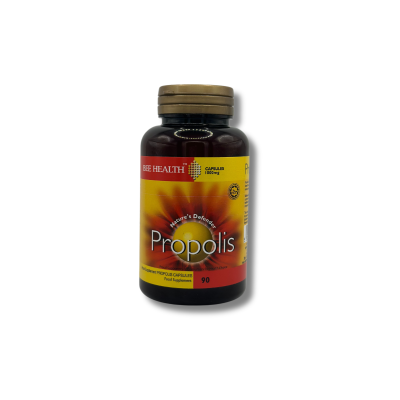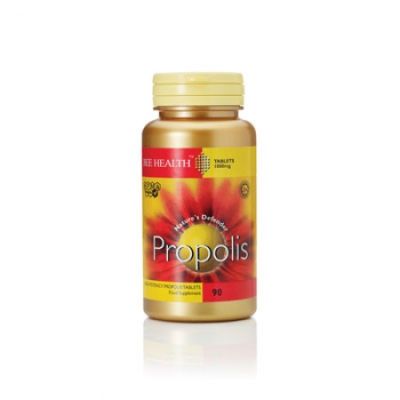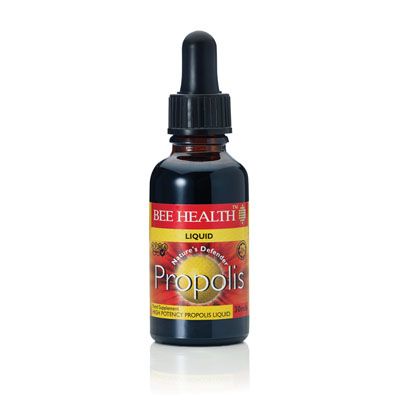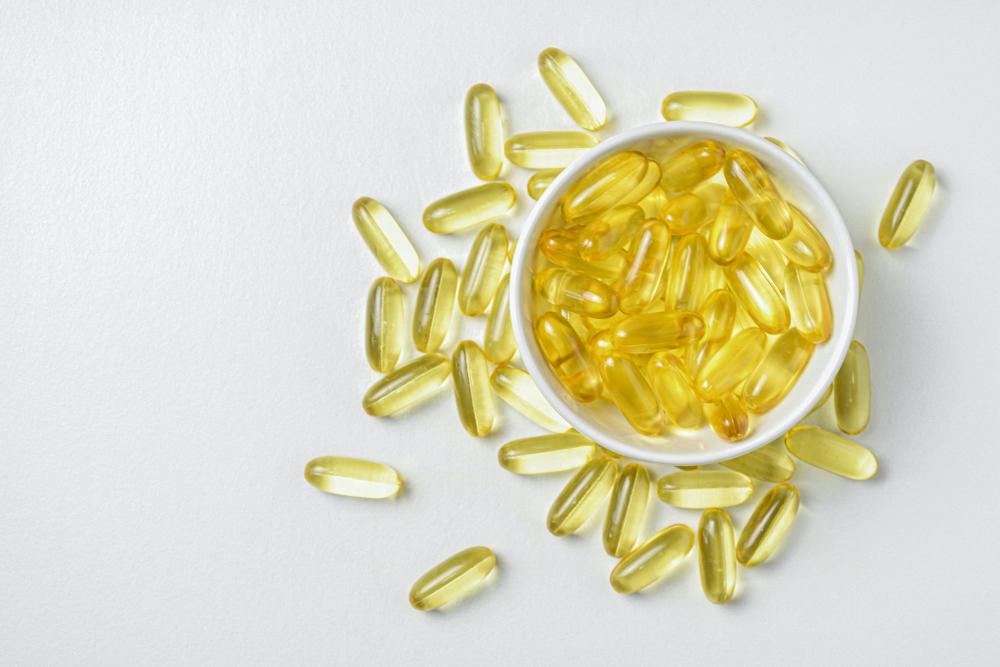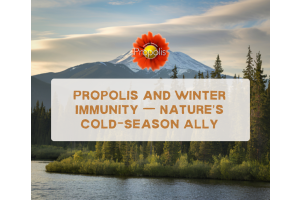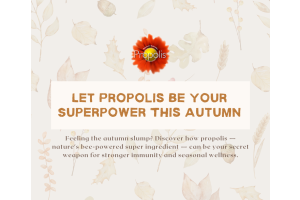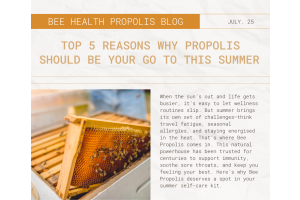Propolis vs Honey
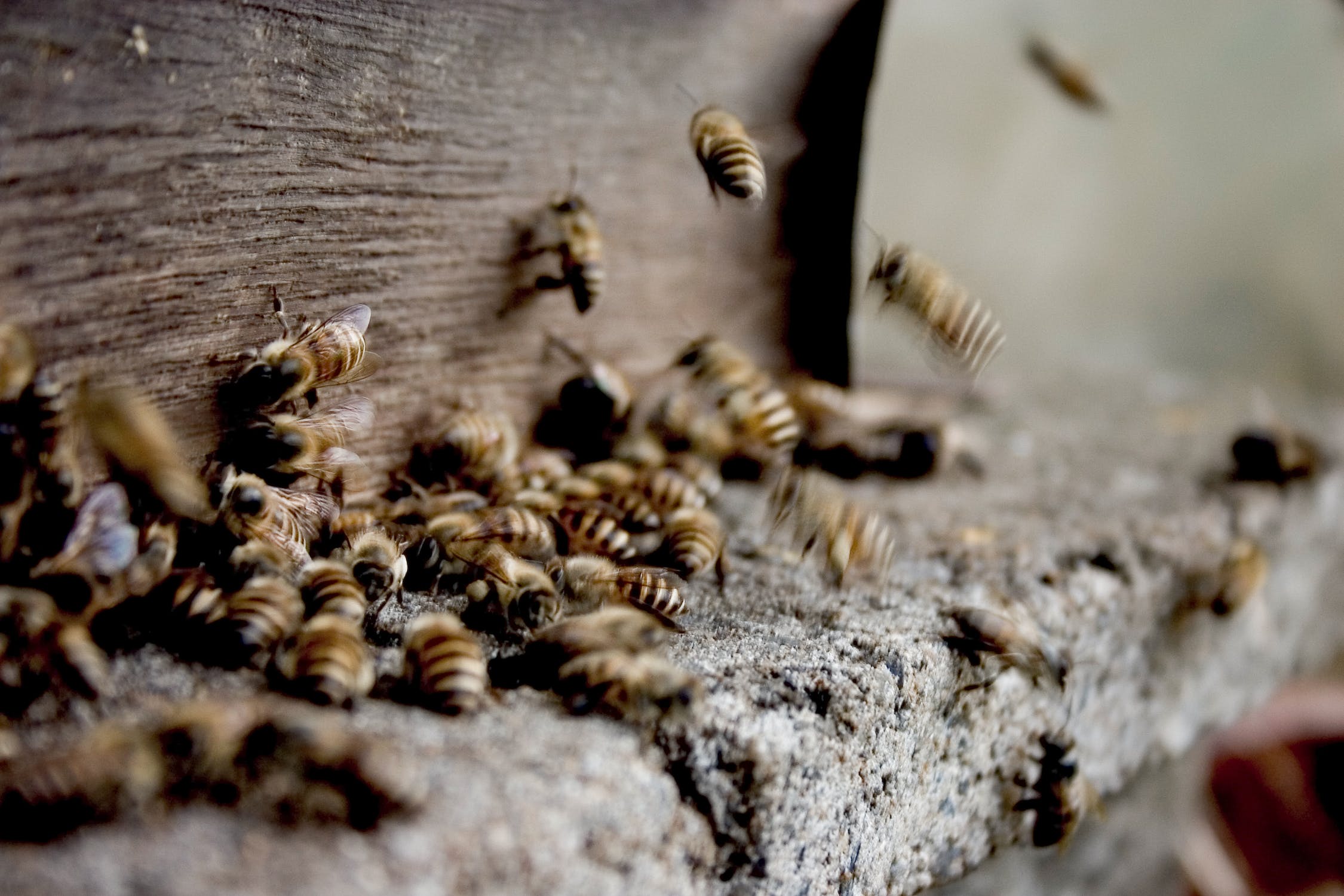
Propolis and honey are both produced by the hard-working honey bee, but they have very different uses. Bees make and use propolis as a type of glue/crack filler to seal any openings and cracks in their hive which keeps it clean and secure from intruders or weather threats. Bees make honey to use as a food source over the winter months when there are fewer flowers around to gather nectar from.
What is the difference?
Worker bees make propolis by collecting resin from trees and plants and then mixing it with their wax and saliva. They then return it to the hive where they pass it on to the house bees to use where needed. Propolis is made up of approximately 50% resins, 30% waxes, 10% essential oils and 5% pollen and 5% various organic compounds. Honey is made from the nectar of plants collected by the worker honeybees. It is carried back to the hive in the bee’s crop (a special stomach that can hold 80% of the bee’s weight) During this time an enzyme in the crop begins breaking down the sugar in the nectar. Once back at the hive, the worker bees pass the nectar back and forth to each other before it is packed into the honeycomb. Once in the honey comb the bees use their wings to fan the nectar to encourage evaporation of water. Bees are able to get the water content of their nectar down from 80% to less than 20% turning the nectar into honey. The high sugar content in the honey inhibits the growth of bacteria and fungi. The bees then cover the honey with beeswax to be used when needed in the winter months.
Honey is the more widely known of the two, and most likely already a staple in your diet. But did you know it has health benefits? If you are looking to get the most out of honey always buy raw honey as it has not been processed and contains a lot more health-benefiting compounds like antioxidants, enzymes and minerals. Honey has many health benefits from reducing the risk of heart disease, helping with digestive issues, helping with depression and anxiety disorders. Manuka honey from New Zealand and Australia has potent antibacterial properties making it effective for healing wounds, aiding digestive health and sore throats. Honey is a natural sugar but still classed as an added sugar, to get the health benefits of honey a large amount would usually need to be eaten and this could take you over your daily recommended sugar allowance.
The benefits of Propolis
Propolis isn’t as tasty as honey, and you certainly wouldn’t eat it on toast, but it does offer more health benefits. Propolis contains over 500 bioactive molecules which have antibacterial, anti-fungal, anti-viral, anti-inflammatory, anticancer and antioxidant properties. Propolis won’t be found in your local supermarket like honey but can be found in most health shops in the form of tablets, capsules, creams, ointments, tinctures, and sprays. There are many proven benefits of propolis and it has been shown to have a positive effect when taken alongside certain drugs, including antibiotics, anti-cancer, anti-fungal, anti-parasitic and anti-diabetic, by enhancing their effectiveness. It also has the ability to heal burns and wounds, prevent tooth decay and has excellent antioxidant capabilities. As you can see propolis and honey have two very different uses for humans too. Honey whilst it does have health benefits is more of a food source and natural sweetener, and propolis is more of a supplement.
- An important note•
Propolis products are not suitable for children under the age of one.


